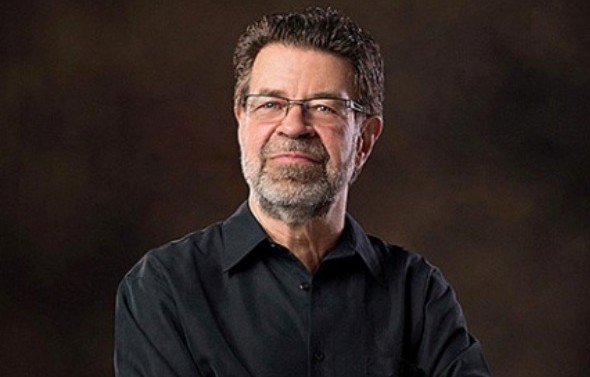How Much Do Voice Actors Make?
When you invited a non-voice actor acquaintance for a visit at your studio, the first thing to ask is perhaps “What is this used for?” while having a look at your shotgun microphone. Then, it will be followed by interrogating you how much you are earning from that gig.
It is easy to say that voice actors get paid on a per job/project basis, but it is not easy to give a definite answer as to how much. Because as much as you want to get what you’re worth, you also want to be fair and realistic.
The earnings of a voice actor varies greatly from the type of voiceover job, size of the project, your niche, your experience as a voice actor, your location, to your marketing skills. Some voice actors are worth millions. Others can make as little as $30 for a simple radio commercial in a small market. Most professional voice actors fall in between.
Ways To Calculate Voice Actor’s Pay
Word Count and Length of Recording
There are few ways to calculate how much voice actors get paid. The most common method is the ratio of number of words to the duration of the recording. However, this is still not a standard basis as the speed of voice and the length of word are two variables that affect the duration. Nonetheless, it’s the least measure to use. You can rely on the script calculator by The Voice Realm to give you a guide on the estimates that consider the speed of voice from slow, regular to fast pace.
Usage
Where and how the voiceover material is going to be used is also taken into consideration. For instance, your 150 word, minute-long voiceover is going to be used on your offline e-learning application. For a non-union rate, that would cost roughly $115. If the recording is going to be broadcast online but non promoted content, the rate will slightly increase up to $140. But if the content is going to be used to advertise a product or service that are ran on websites, a minute long recording would cost $250. One good example of this usage is a voiceover recording that plays on Youtube before the actual content begins.
Rates are buy-out (unlimited usage) except for radio, television and internet commercial spots which have a 12 month license from date of recording.
The Voice Realm Rate Card will give you a better understanding how voice over rates fall on the industry scale.
Let’s Check Some Figures – Voiceover Average Salary
The following figures change overtime and may vary by Country but briefly illustrate the differences on how voice actors get paid.
According to ZipRecruiter’s compensation estimate, as of June 2019, the average annual pay for an experienced voice actor in the United States is around $90,000.
Average Voice Actor Salary in the US
25% – $31,000 and above
75% – %166,000
Lowest to get – $14,500
Highest to get – $223,500
Factors That Determine Voice Actor’s Pay
Size, Type and Usage of Voiceover
As mentioned above, the biggest indicator of voice over rate is the type of voice over job, size of the project, and whether will it be broadcast externally or not. Size of the project means the duration of the voiceover and the number of words in the script. Type and Usage denotes who the audience would be, the location where the voiceover will be aired (local, regional, national, or international), and how it is going to be used – can be either of the following:
Non-broadcast Usage:
E-learning , Educational, Medical, Training, and Gaming
Non-broadcast, Corporate Internal, Cinema, Apps, Independent Films
On hold, Phone Messages, Voicemail, IVR
Podcasts – Opener and Closer
Audiobooks
Live Event Announcer
Broadcast Usage:
TV and Radio Commercial – Varies depending on the region
Internet, Online Commercial – Paid to be Promoted (Youtube, Spotify, Hulu, Pandora, Etc)
Niche, Skill Level and Experience
Voice acting business branches to an array of industries: Advertisement agencies, Telecommunications, Podcasts, Event Announcers, TV & Radio Commercials, Explainer Videos, Production Houses, Publishers, Video Games, Theater, Web Developers, E-learning – you name it, you have a lot to try on. But first things first, know your voice type first so you can set you niche. This process may take time.
Your rate depending on your skill level and experience is usually proportional to your niche. Novice actors usually start up on easier genre like small, non-promoted commercials and general corporate voice overs before specializing. Once they’re skilled enough and gained more experience, actors start to dedicate on one niche that will determine their acting career path, perhaps trying to voice characters and soon engaging to video game voice acting, animation and audiobooks.
Take note that the more difficult the niche is and the more experienced you are as a voice actor, the higher you can demand for your rate.
Location: Union vs Non-Union Work Voice Acting Work
Union
How much voice actors make will depend on whether it is a union (SAG-AFTRA) or non-union job. Unions don’t exist in every Country but in the United States the union is SAG AFTRA. Voice actors who are members of the Alliance of Canadian Cinema, Television and Radio Artists (ACTRA) are paid according to union guidelines. Know more about Union Rates.
Non-Union
If you have a good head for business, you can do extremely well. In other words, your ability to get paid the kind of money you want (even parity with Union rates) is directly proportional to how much you prepare, and what kind of opportunities present themselves at any given time. Then you need to seize those opportunities.
Voiceover Agency Listing
Getting listed by a voiceover agency is one of your must-haves as an actor. You cannot do it all alone when building up your career. So target those top agencies that can give you a steady stream of well-paid work. Few of the most notable in NY and LA is Abrahams and Atlas Talent Agency, EM Voices in Australia, and Hobsons in London. However, these agencies are hard to get into as they filter only the very well established voice actors.
But there are lots of second tier voiceover agencies who can expose you to the market. Before you eye for these agencies, make sure you have put together a portfolio of your good work and outstanding demos which are your very resume when you go to an agency.
Marketing Skills
Equipping yourself with the right practice of marketing is one of the biggest indicators of how likely you are to get better pay. By having all your marketing platforms calibrated (Website, Facebook, Twitter, Instagram, Casting Site, Casting Agency, Peers, Network), you can feel a sense of steady stand in the industry which means good exposure. And good exposure means many clients can see your work and are likely to land you a gig.
One important thing to note though is that marketing yourself as a voice-actor is not an overnight activity. This is part of most of your effort while not working on projects, you build your profile and extend your network to meet more clients. You get more work when you keep on building relationships and continually developing and marketing your personal brand.
So how much do voice actors make? Many general claims and estimates are sprinkled all over the net, but the definite answer will come from you.















